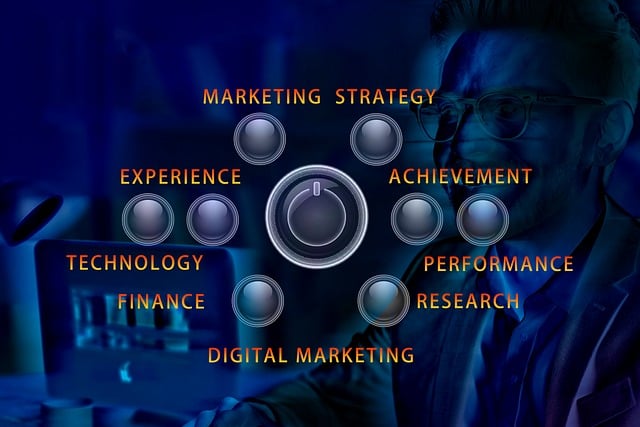Managed Service Providers (MSPs) can significantly enhance their marketing efforts by leveraging a combination of targeted segmentation, personalized content delivery through automation, and data-driven insights to engage potential clients more effectively. By understanding the unique needs and behaviors of different client groups, MSPs tailor their messaging accordingly, ensuring that their content resonates with each audience segment. Marketing automation tools facilitate the efficient distribution of these tailored communications at scale, while continuous analysis of campaign performance allows for ongoing optimization and refinement of marketing strategies. This approach not only improves engagement and conversion rates but also solidifies the MSP's reputation as a knowledgeable and reliable partner in IT management and cybersecurity, ultimately driving sustainable business growth.
10 Marketing Automation Strategies for MSPs: Enhancing Efficiency and Effectiveness in Client Acquisition and Retention
In the competitive landscape of managed service providers (MSPs), the integration of marketing automation is not just an advantage—it’s a necessity. This comprehensive guide delves into ten targeted strategies designed to streamline MSP marketing efforts, from lead scoring to predictive analytics, ensuring that every automated step maximizes engagement and conversion. By leveraging personalized campaigns, robust content strategies, and seamless CRM integrations, MSPs can not only nurture leads efficiently but also foster strong client relationships that stand the test of time. Discover how to elevate your marketing game with these actionable insights tailored for the MSP sector.
- Leveraging Lead Scoring to Prioritize Prospect Engagement for MSP Marketing
- Personalization of Marketing Campaigns to Enhance Client Relationships in MSP Marketing
- Utilizing Social Media Automation to Expand Online Presence for MSP Marketing
- Email Marketing Automation Strategies for Effective Lead Nurturing in MSP Marketing
- Content Marketing Automation: Creating a Consistent Value Proposition for MSP Marketing
- Segmentation and Targeting for Tailored MSP Marketing Campaigns
- Implementing Workflow Automation to Streamline Sales Processes for MSP Marketing
- Analyzing and Optimizing Marketing Performance with Data-Driven Insights in MSP Marketing
Leveraging Lead Scoring to Prioritize Prospect Engagement for MSP Marketing

Incorporating lead scoring into an MSP’s marketing automation strategy plays a pivotal role in prioritizing prospect engagement effectively. By assigning scores to leads based on their behaviors, demographic information, and interactions with marketing content, MSPs can identify the most promising prospects to target first. This prioritization ensures that resources are allocated efficiently, focusing on those leads most likely to convert into valuable clients. The process begins by categorizing leads into different tiers, with higher scores indicating a greater propensity to engage with services offered. Utilizing marketing automation platforms that integrate lead scoring allows MSPs to set up automated workflows that nurture prospects with tailored content, thereby increasing the chances of conversion. By continuously analyzing data from various touchpoints, MSPs can refine their lead scoring models, making them more accurate over time and enhancing the overall efficiency of the marketing efforts. This targeted approach not only optimizes the marketing funnel but also helps MSPs to cultivate stronger relationships with prospects, ultimately leading to increased sales and a healthier customer base.
To further refine engagement strategies, MSPs should consider leveraging predictive analytics in conjunction with lead scoring. Predictive modeling can anticipate which leads are most likely to purchase based on historical data and trends. By combining this insight with lead scoring, MSPs can create a dynamic system that ranks prospects not just on their current engagement but also on their predicted future behavior. This dual approach allows for a more proactive and personalized marketing campaign, ensuring that the most promising leads receive the appropriate level of attention at the optimal time in their buyer’s journey. The integration of these advanced techniques into an MSP’s marketing automation framework not only streamlines the sales process but also positions the MSP as an expert in the field, capable of delivering precise and relevant services to meet the unique needs of each prospect.
Personalization of Marketing Campaigns to Enhance Client Relationships in MSP Marketing

Incorporating personalization into marketing campaigns is a pivotal aspect of MSP marketing, as it significantly enhances client relationships and fosters trust. By leveraging automation tools, MSPs can tailor their messaging to align with individual client needs and preferences. This level of personalization not only makes clients feel valued but also positions the MSP as attentive and responsive to their specific business challenges. Automated segmentation allows for the division of clients based on behavioral data, enabling MSPs to deliver targeted content that resonates with each unique segment. This approach ensures that marketing efforts are not generic but rather address the particular pain points and goals of each client, thereby increasing engagement and client satisfaction.
Furthermore, advanced marketing automation platforms enable MSPs to track client interactions across various channels, providing insights into their preferences and behaviors. Utilizing these data-driven insights, MSPs can refine their campaigns, ensuring that the messaging is not only personalized but also timely and relevant. By setting up triggers that initiate specific actions based on client responses, MSPs can create a seamless communication flow that complements the client’s journey. This strategic use of automation in personalization enhances client relationships by demonstrating an understanding of each client’s unique situation, thereby strengthening the bond between the MSP and its clients in the competitive landscape of managed service provision.
Utilizing Social Media Automation to Expand Online Presence for MSP Marketing

Incorporating social media automation into MSP marketing strategies is a pivotal step for expanding an online presence effectively. By leveraging platforms like LinkedIn, Twitter, and Facebook, MSPs can consistently engage with their audience, disseminate valuable content, and establish themselves as thought leaders in the IT services space. Automation tools enable the scheduling of posts across various channels at optimal times, ensuring that content reaches the intended audience when they are most active. This strategic timing, combined with the ability to tailor messaging to different platforms, can significantly enhance brand visibility and recognition. Moreover, social media automation allows MSPs to monitor industry trends and engage in relevant conversations by using social listening tools. These insights help in crafting messages that resonate with potential clients, fostering relationships through personalized interactions at scale. By maintaining a consistent and targeted social media presence, MSPs can build brand authority and trust, which are critical components of effective marketing in the digital age.
To maximize the impact of social media automation in MSP marketing, it’s crucial to curate content that is both informative and engaging. This includes a mix of original articles, industry news updates, educational resources, and interactive posts designed to spark discussions among peers and clients alike. By utilizing analytics to track performance metrics such as engagement rates, click-through rates, and follower growth, MSPs can refine their approach, focusing on the types of content that generate the most interest and leads. This data-driven strategy ensures that MSPs not only expand their online presence but also turn this presence into tangible business opportunities. Automation thus becomes a powerful tool in the MSP marketing arsenal, enabling businesses to connect with a wider audience more effectively while efficiently managing their resources.
Email Marketing Automation Strategies for Effective Lead Nurturing in MSP Marketing

Incorporating email marketing automation into the broader MSP marketing strategy can significantly enhance lead nurturing efforts. By segmenting your audience and personalizing communication, MSPs can deliver targeted content that resonates with potential clients at different stages of the buyer’s journey. Automated email workflows allow for consistent engagement without manual intervention, ensuring that leads receive timely and relevant information about services and solutions tailored to their specific needs. This approach not only nurtures relationships but also positions the MSP as a knowledgeable and reliable partner in the technology space. Additionally, by monitoring email performance metrics such as open rates, click-through rates, and conversion rates, MSPs can refine their strategies for greater effectiveness. This data-driven process enables MSPs to optimize content, improve engagement, and ultimately move leads through the sales funnel more effectively.
Furthermore, leveraging advanced email marketing automation tools, MSPs can create dynamic content that adapts to user behavior and preferences. By utilizing behavior-based triggers, MSPs can send contextually relevant emails that address the unique challenges and opportunities of each prospect. This level of personalization not only improves engagement but also demonstrates a deep understanding of potential clients’ needs, thereby fostering trust and credibility. In doing so, MSPs can nurture leads with precision, guiding them through the decision-making process with information that is both timely and tailored to their business requirements. This strategic use of email marketing automation is a cornerstone of an effective MSP marketing plan, designed to convert prospects into loyal clients.
Content Marketing Automation: Creating a Consistent Value Proposition for MSP Marketing

In the realm of Managed Service Providers (MSPs), content marketing automation plays a pivotal role in establishing a consistent value proposition that resonates with potential clients. By leveraging automated systems, MSPs can produce and distribute valuable, relevant, and engaging content without the time-intensive aspects of manual creation and dissemination. This efficiency allows for a more frequent and uniform delivery of insights, tips, and solutions tailored to the specific pain points and interests of their target audience. The automation of content marketing not only streamlines the process but also ensures that MSPs maintain a strong and cohesive brand presence across various platforms. By curating and scheduling content that aligns with their expertise in IT management and cybersecurity, MSPs can effectively demonstrate thought leadership and trustworthiness, which are critical components of successful MSP marketing strategies.
Moreover, the integration of advanced content marketing automation tools enables MSPs to personalize communication at scale, addressing individual customer needs and preferences. These tools can segment audiences based on behavior, interests, or industry, delivering customized content that adds value and positions the MSP as a partner invested in the client’s success. The strategic use of analytics within these platforms further refines campaign effectiveness, allowing MSPs to optimize their content for better engagement and lead generation. By consistently providing a value proposition through automated content marketing, MSPs can solidify their position as indispensable allies to businesses looking to navigate the complexities of the digital landscape.
Segmentation and Targeting for Tailored MSP Marketing Campaigns

In crafting effective marketing campaigns, MSPs can leverage segmentation and targeting to deliver tailored content that resonates with distinct client groups. By dividing their audience into segments based on common characteristics such as industry type, company size, or geographic location, MSPs can tailor their messaging to address the specific challenges and needs of each segment. This targeted approach ensures that marketing efforts are not only more relevant but also more impactful, as the communications are aligned with the precise pain points and aspirations of each segment. For instance, a campaign targeting small businesses might focus on affordability and ease of use, while another aimed at enterprises could emphasize robust security features and comprehensive support services. By employing data-driven insights to inform their segmentation strategy, MSPs can create highly personalized marketing campaigns that not only capture attention but also drive conversions and foster long-term client relationships.
Furthermore, the use of automation tools allows MSPs to efficiently manage these segmented campaigns at scale. These tools can automatically distribute content based on predefined rules, ensuring that each segment receives the most appropriate and timely marketing messages. The automation of such tasks as email marketing, social media posting, and lead nurturing workflows frees up valuable time for MSPs to focus on strategy and creativity. By continuously analyzing campaign performance data, MSPs can refine their targeting and segmentation approaches, making their marketing efforts increasingly effective over time. This iterative process of optimization, underpinned by automation, positions MSPs to engage potential clients more effectively and solidify their position as experts in their field.
Implementing Workflow Automation to Streamline Sales Processes for MSP Marketing

Incorporating workflow automation within MSP marketing strategies is a pivotal step toward streamlining sales processes and enhancing operational efficiency. By automating repetitive tasks, MSPs can significantly reduce the time spent on administrative duties, allowing the marketing team to focus on more strategic initiatives. Workflow automation tools can manage lead nurturing campaigns, segment contacts based on behaviors or interests, and even trigger personalized follow-up communications at critical points in the buyer’s journey. This not only improves response times but also ensures a consistent and targeted approach to engaging potential clients. The benefits extend beyond mere time savings; they encompass better customer experiences through timely and relevant interactions, which can lead to increased conversion rates and a stronger sales pipeline for MSPs.
Furthermore, by leveraging advanced workflow automation, MSPs can create dynamic content that resonates with different audience segments. Automated workflows can adjust the marketing messages based on customer data and interactions, delivering content that is tailored to individual needs and preferences. This level of personalization in MSP marketing efforts not only enhances customer engagement but also positions the service provider as a knowledgeable and attentive partner, thereby fostering trust and credibility. The strategic implementation of workflow automation tools is essential for MSPs looking to optimize their sales processes and achieve more with less, ultimately driving growth through efficient and effective marketing initiatives.
Analyzing and Optimizing Marketing Performance with Data-Driven Insights in MSP Marketing

In the realm of Managed Service Providers (MSPs), marketing automation is a pivotal tool for not only reaching potential clients but also for refining marketing efforts to achieve optimal performance. Analyzing marketing data is key to understanding which strategies yield the best results, allowing MSPs to tailor their campaigns effectively. By leveraging data-driven insights, MSPs can identify trends and patterns in customer behavior, leading to more personalized and targeted marketing initiatives. This approach enables MSPs to optimize their marketing funnel by focusing on high-performing channels and content types, thereby maximizing return on investment (ROI).
Furthermore, continuous monitoring and analysis of campaign performance are crucial for MSPs to stay ahead in a competitive market. Utilizing marketing automation platforms equipped with analytics capabilities, MSPs can track key performance indicators (KPIs) such as conversion rates, click-through rates, and customer engagement levels. These insights help in refining strategies, A/B testing different approaches, and making data-informed decisions that enhance the effectiveness of marketing efforts. By embracing a culture of continuous improvement through data analysis, MSPs can ensure their marketing automation strategies are not only reaching the intended audience but also resonating with them, ultimately driving business growth and success.
In today’s digital landscape, Managed Service Providers (MSPs) have a pivotal opportunity to elevate their marketing strategies through automation. By implementing the ten outlined strategies—from optimizing lead scoring to streamlining sales processes with workflow automation—MSPs can achieve more efficient, personalized, and effective marketing campaigns. These tactics not only enhance client relationships but also provide valuable insights into performance, enabling data-driven decision-making. MSPs that integrate these automation strategies are poised to gain a competitive edge by delivering consistent value and fostering strong customer engagement. As the digital marketing environment continues to evolve, embracing these automation strategies will be crucial for MSPs aiming to thrive and expand their reach in the market.
